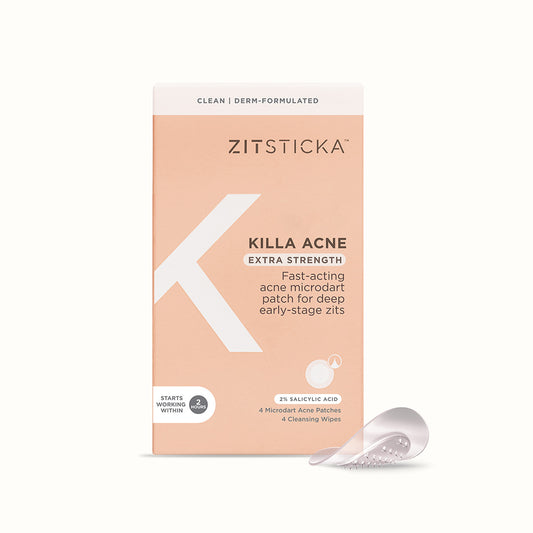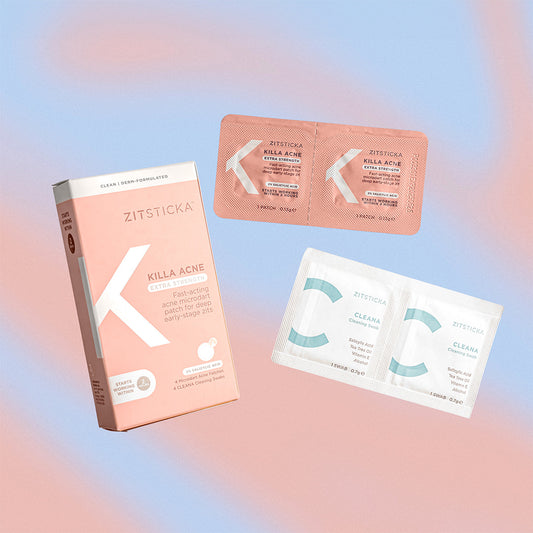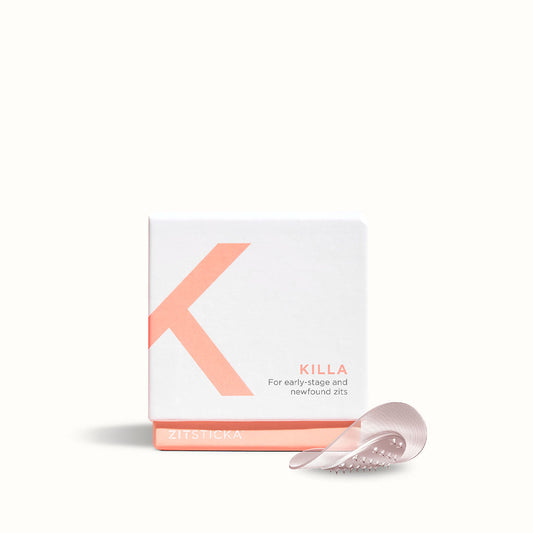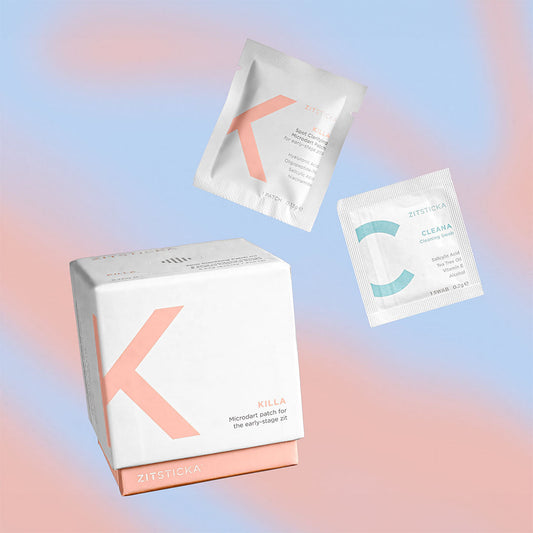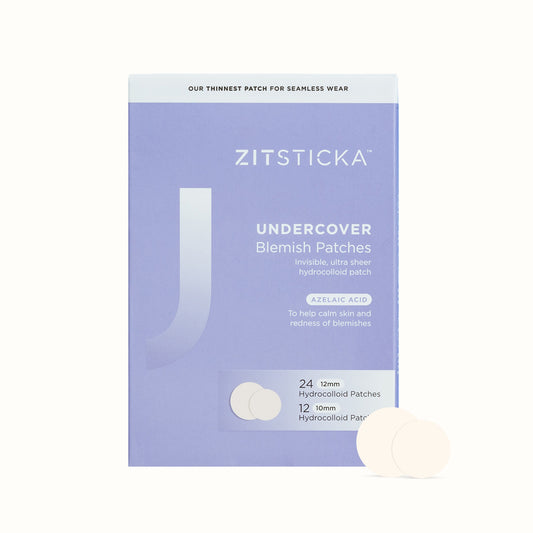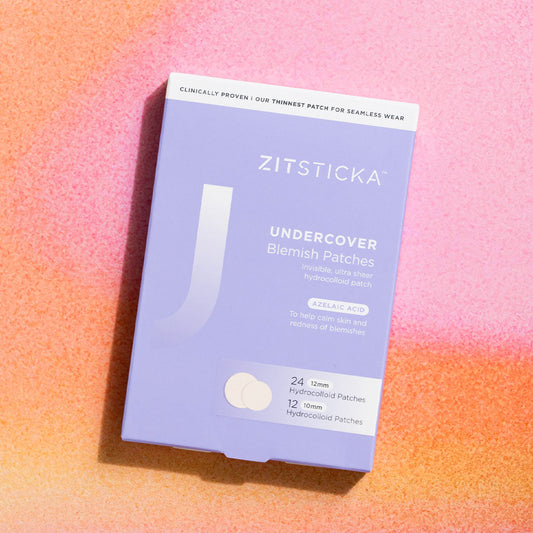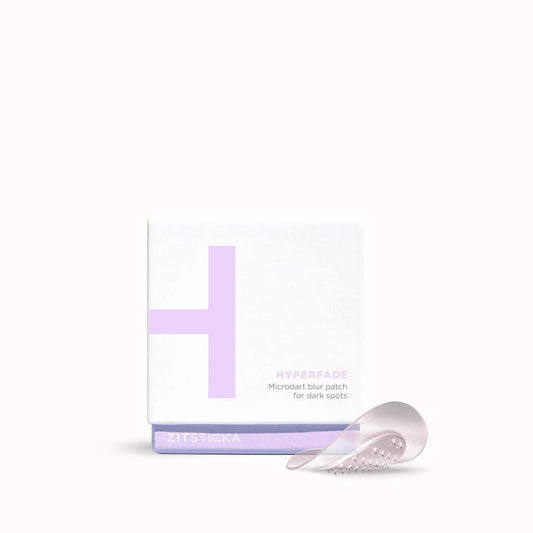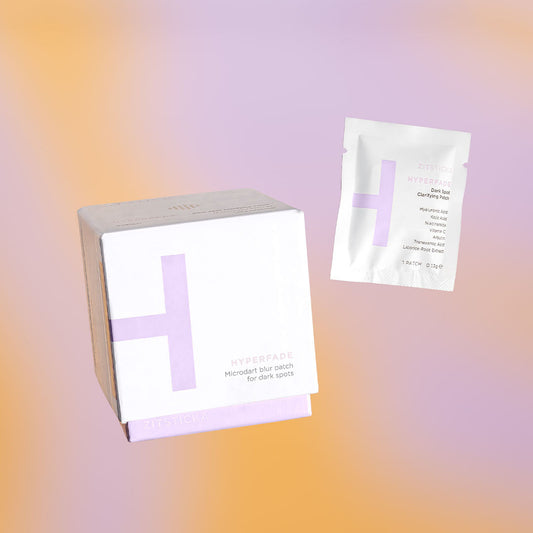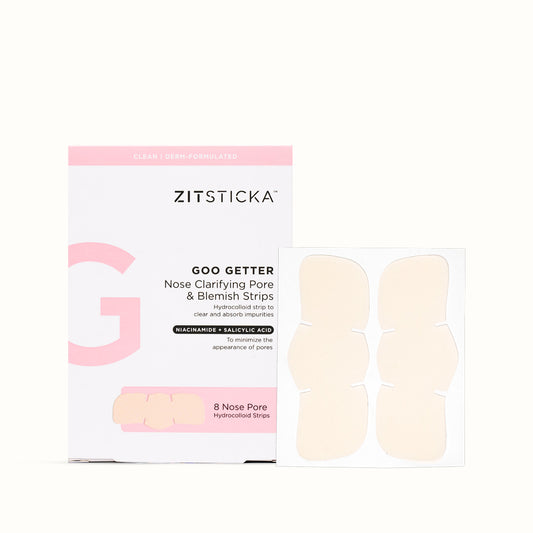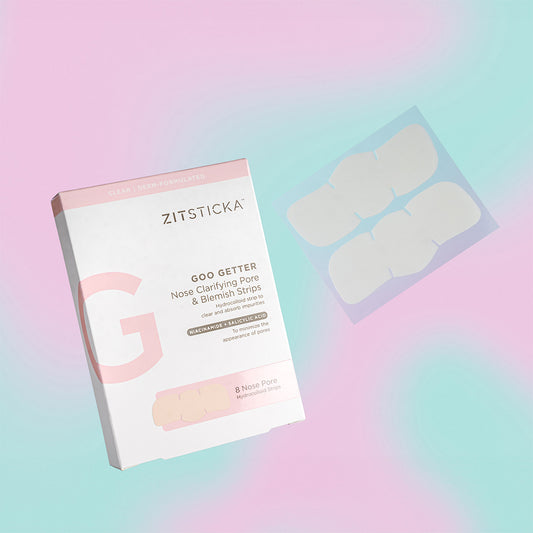The debate around whether summer causes more or fewer breakouts is almost as ancient as the phenomenon of breakouts themselves. Almost.
On one side of the aisle, it’s proclaimed that the months of June-August are great for our flesh suits, and in particular the area north of our necks. The other side deems temperatures in excess of 64°F to be a heinous crime against the pursuit of zit-free skin.
So which is it? Do we break out more in summer, or less?
Gloves off, folks. We’re sorting this one out, debate styles. The Internet vs. the Internet. Expect expert weigh-ins, revelatory zit facts and tips on targeting your breakouts, no matter where you stand.
The Sun Worshippers
Hello and welcome to Team Summer*, the corner of the internet that believes that the sunshine is as good for our skin as it is our souls.
To kick things off, Dr. Arielle Nagler, an assistant professor of dermatology, is here to big up summer by pointing out the negative effects its opposition—commonly known as winter—can have on our skin. “The cold and dryness that comes with cold temperatures can cause inflammation, which is one of the main pathogenic factors for acne formation,” she asserts.
But, don’t get too excited just yet. This isn’t necessarily true for everyone; some struggle more in sweaty summer conditions than in dry winter ones.
Although it has been observed in multiple studies that there is a minor improvement during the summer, it is also possible for the condition to be aggravated in some individuals. The benefits the sun can have on blemish-prone skin are usually temporary, and lesions typically worsen after the end of summer.
Hmm, alright. Let’s see what Team Anti-Summer has to say…
The Sun Naysayers
Now, let’s confer with the part of the internet that believes that summer might just be the sworn enemy of acne.
“When it’s really hot, people tend to sweat significantly more,” says dermatologist Mona Gohara, MD, associate clinical professor at Yale University. “That sweat then sits on your face, mixing with all the sticky gunk and grime and pollution in the air to create the perfect environment for pores to clog and acne-causing bacteria to grow.”
New York City–based dermatologist Dr. Howard Sobel, MD, is in agreement. “Heat leads to an increase in sweating, which causes the hair follicles to become clogged and accumulate sebum,” she explains. “Bacteria will then build up and cause pimples.”
On top of that, we tend to touch our skin more in summer—blotting with shirts or towels or sheets, wiping or fixing makeup with fingers, dusting on more powder to mattify the shine, and feeling for new or growing zits. So, not only are you introducing new bacteria and oils to your face, but you’re also irritating your skin barrier with all the wiping and touching.
Air conditioning is also a contributing factor to summer zits. “Air-conditioning usually removes moisture from the air, making it incredibly drying, especially if it’s blasting you right in the face,” says Dr. Gohara. “So it ends up sucking the moisture from your face, which causes your skin to overproduce oil to compensate for the dryness.”
You can’t talk about summer skin in 2020 without touching on mask-ne. COVID-19 gave birth to a few phrases that would have been met with bewilderment six months ago, but which are now very much a part of our daily lexicon. ‘Mask-ne’, like the ‘social distancing’ and ‘self-quarantining’ that came before it, is one of those. For those unfamiliar, mask-ne is the name ascribed to the acne that can result from wearing a mask around all day, especially when it’s sizzling outside. (You can read all about how to prevent and treat mask-ne thanks to our handy little guide).
The verdict?
Basking in warm rays is one of life’s greatest pleasures, but is it the best thing for our zits? Not so much. This doesn’t mean that controlled exposure to the sun (using protection, of course) is objectively bad for your skin—ILY, vitamin D—but if you’re looking to the big fireball in the sky to fix your blemish woes, you are probably doing more harm than good. Might we recommend these zit-reducing practices instead?
Tailor your routine to the season. "Swap out heavier and thicker moisturizers for more lightweight lotions and serums," recommends NYC-based derm Dr. Shereene Idriss, MD. "When it comes to skincare, less is more in the summer for everything — except SPF!"
KILLA them with kindness. When the universe is all, “Don’t talk to me or my sun again about your zit woes!”, you can rely on the KILLA patch to be there 4 u. She’s layered with 24 microdarts that self-dissolve and shoot all the good stuff—hyaluronic acid, oligopeptide -76, salicylic acid and niacinamide—into your skin. The result? The untimely death of your zit. (We’re talking two hours after application).
Sweat it out comfortably. Make sure you allow your skin to breathe, especially post-workout. It’s super tempting to hang out in your gym clothes after your Barre class or run (we know, we know), but this happens to create the perfect environment for bacteria to flourish. Gross! Make sure to jump in the douche straight after sweating it out, and if possible use an antibacterial wash that contains benzoyl peroxide to stave off bacteria. Also, we’re not sure who needs to hear this, but you should always wash your exercise clothes after each wear.
Stay sun safe. This one is important for so many reasons. We know without a doubt that exposing ourselves to excess sun increases our risk of skin cancer and ageing, but it can also cause the red marks from acne to darken, resulting in hyperpigmentation. Sun exposure during the summer months may cause your dark spots to appear, well, darker. Prevention is key to dealing with hyperpigmentation from acne scarring. In other words: Apply a non-comedogenic sunscreen on and make best friends with the cutest sun hat you can find.
*I haven’t typed out ‘Team Summer’ since an MSN messenger-hosted debrief with a friend about ‘The Homecoming’ episode of The O.C. The year was 2003 and my vote was obviously with Summer (soz, Anna!).
Alright, I’m off to watch The O.C. and scour the internet for a wide brim hat that will give Jacquemus a run for his money. Stay sun safe out there, friends!
On the topic of myth-busting—Can eating certain foods help fight acne? This article explains.
Header image: @isotretinoinwiths

